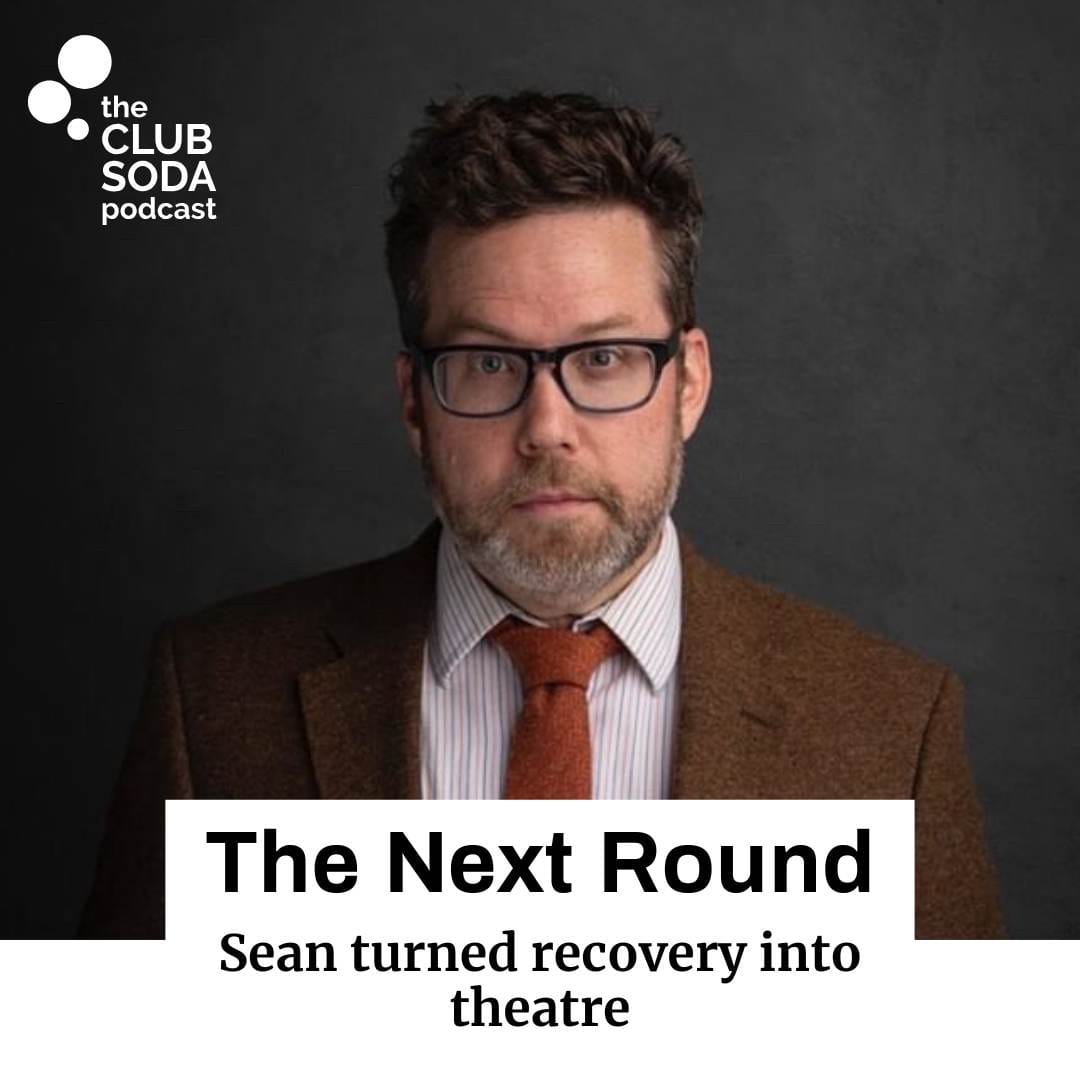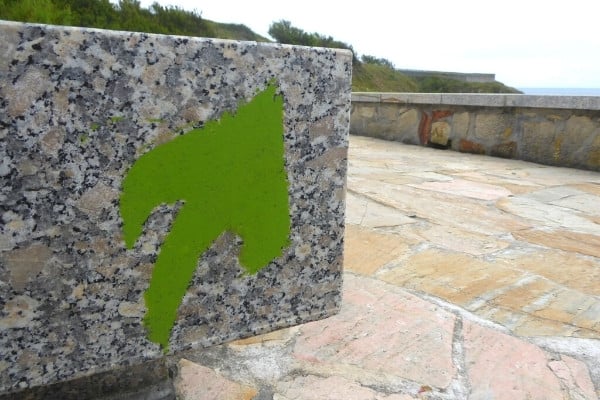
This website uses cookies to improve your experience. We'll assume you're ok with this, but you can opt-out if you wish. Read More
The Next Round: What happens after you change your drinking?

“Progress, not perfection” is a phrase I often hear in the Club Soda community. And it might sum up your experience of 2021. I know so many people who set out with good intentions last January but who were derailed by pandemic pressures. Whether you’re cutting down on your alcohol consumption or stopping drinking altogether, you might have recognised this year that change isn’t a straight or easy path.
So a reminder to prioritise progress, not perfection, seems encouraging. But it can also feel like a cop-out. You might have used the phrase to comfort yourself if you fear that you didn’t try hard enough. And especially if you want to be alcohol-free, you may have felt disappointment at not achieving a perfect track record.
I think a focus on progress, not perfection provides a helpful perspective, but the idea does need a little unpacking. So in this article, I want to talk about where the idea originates. I will describe how perfection isn’t something you can reasonably achieve. I want to share my own experience of making progress by telling about my experiences walking in Spain. I want to encourage you to make progress on your terms. And finally, I will give you ten ways you can make progress in changing your drinking, whether you are cutting down, taking a break or stopping for good. And as a bonus, I want to share a free tool that I use to review my progress each year.
Let’s start walking this path together.
The story of progress, not perfection began over 80 years ago, with the birth of Alcoholics Anonymous in the 1930s. Since that time, the fellowship has helped countless people build new lives beyond alcohol. But I’d argue that the organisation’s cultural impact is even more profound. As one of the first movers in substance misuse in the twentieth century, AA rewrote the language we use to describe problems with alcohol.
For example, take the word “alcoholic”. I’ve written previously about how we don’t use that word in Club Soda, at least not to describe people. Most doctors and substance misuse professionals don’t use it either. But the idea that someone is and will always be an alcoholic is one of the myths and misconceptions about problem drinking that finds its roots in AA’s foundational texts. Thanks to academic research, we know more about how people use substances than we did a century ago. And we’ve discovered new ways to help people change. But alcoholism is an idea that persists in popular culture, along with the proposition that life-long abstinence is the only solution. Of course, sobriety is the right approach for some, but moderation can help people change too. People are complex, and there are few one-size-fits-all solutions to any of life’s problems.
Like many other ideas about alcohol and change, progress, not perfection is rooted in AA’s philosophy. It’s actually a slight misquotation of a passage from chapter 5 of the Big Book:
“We are not saints. The point is, that we are willing to grow along spiritual lines. The principles we have set down are guides to progress. We claim spiritual progress rather than spiritual perfection.”
There are a lot of issues to unpack here, not least the word spiritual. The idea of spirituality can be a turn-off for many people and one of the reasons that Club Soda members tell me they don’t get on with AA’s approach. That may be one reason why the phrase has shortened over time to progress, not perfection.
But context is important. The idea of progress, not perfection, appears directly after a statement of AA’s 12 steps. And I think that is significant. A 100% track record might seem admirable, but aiming for perfection isn’t necessary. What matters is that you take steps towards a better way of life.
Let go of the idea of perfection. Just because you don’t get everything right, it doesn’t mean that everything is wrong.
Perfection, in any case, is unachievable. Etymologically, to be perfect means to be complete. You can finish many things in your life, like jigsaw puzzles, three-course meals or stacks of ironing, but life itself can’t be completed. That’s not the way it is. Life is an unfolding experience that you can only live. Whatever point you’ve reached, whatever you have achieved, there is always something else ahead.
You’re not finished yet. And you never can be.
Many of us who struggle with alcohol are secret (and not-so-secret) perfectionists. We carry an intolerable burden of expectations we can never fulfil. Sometimes we place those unrealistic requirements on other people too. But mostly, perfectionism is another way of expressing our shame and disappointment in ourselves. We are not who we could be, and that fact hurts us. We drink to mask that shame, but the drinking makes it worse. Our perfectionism is exhausting as we chase the illusion of a completed life.
So let go of the idea of perfection. Remember that just because you don’t get everything right, it doesn’t mean that everything is wrong.
Whatever path you are following in changing your drinking, aim to make progress. Along the way, you will overcome some obstacles. Some problems will persist, despite all your efforts. And as you resolve some difficulties, new challenges will emerge. The most important thing is to keep going.
Keeping going is something I’ve experienced.
Back in 2018, I walked alone, following the coast of Galicia for 260km. I started at A Coruña. From Malpica, I followed O Camiño dos Faros, the way of lighthouses, to Fisterra, the end of the ancient world. The better known Camino to Santiago de Compostela is a well-maintained route, with rest stops along the way and a cathedral at the finish line. I followed a path along cliff edges, through gorse bushes and up sandy mountains, all within the sound of the crashing Atlantic ocean.
Before I set out, I thought the idea of walking along the Costa da Morte, the coast of death, sounded like an epic adventure in itself. But there was a deep purpose in my walking. In truth, I felt like I had run out of road. Some months before, I had left my home and job, given away most of my belongings, and set off to wander in the world. But I needed to go further, somehow. I felt compelled to let go entirely of the life I had been living and find a different way to tread, as the poet David Whyte puts it.
Some days I ambled. Some days I sat more than I hiked. But every day I went to sleep in a different place. I made progress.

So I walked to the end of the world. I was worried I might get lost along the way, but I needn’t have been. In the end, the path along the coast of Galicia is waymarked with distinctive green arrows. So I discarded my map and trusted my eyes. In some places, arrows came thick and fast; left at this rock, right at this pine. But occasionally, the arrows disappeared. I walked onwards with the sea at my right shoulder and, at last, another green arrow would appear. Someone had walked this path before me, and whoever they were, I trusted them.
But walking alone was hard. I spent all day, every day, in the uninterrupted company of my thoughts and feelings. I was exhausted, scratched, bruised by the experience. I cried often. But I had given myself no choice but to keep going. So I kept going.
Some days I ambled. Some days I sat more than I hiked. But every day, I went to sleep in a different place. I made progress.
Pilgrimage is a valuable metaphor for personal change. As a pilgrim, you travel from one place to another. You take simple steps, day-by-day. You trust the guidance of friends and strangers and keep going until you reach your destination.
But all metaphors have their limits. Your life, unlike the pilgrim’s path, is not conveniently waymarked. There may be hints about good directions to take, but you will face uncertain crossroads. Different tracks may look appealing or appalling. And even if you reach what feels like a final destination, the path that led you there may confuse you.
Ultimately, you decide where you are going. You set your direction. You walk out each day in search of a better life than the one you are leaving behind.
As the poet Antonio Machado writes, Caminante, no hay camino, se hace camino al andar. Walker, there is no path; the path is made by walking.
What does this mean when it comes to changing your drinking?
Well, you are certainly not the first person in history to reassess their relationship with alcohol. There are well-worn routes to life beyond alcohol. But nobody else shared your starting point, and you may be heading in a different direction. That’s OK. Your path is unique.
That doesn’t mean there’s nothing to learn from others, though. There are common obstacles that many people have successfully navigated. There are helpful tips about avoiding pitfalls and staying on track. So you don’t have to walk alone.
But ultimately, you decide where you are going. You set your direction. You walk out each day in search of a better life than the one you are leaving behind.
And nobody can walk your path for you. It’s your steps, your stumbles, that lead you to wake up in a different place tomorrow morning.
You make your path by walking it. And it’s a path of progress, not perfection.
Let’s make this real. If you want to progress by cutting down alcohol or stopping drinking altogether, how should you proceed? Here are some ideas from a fellow pilgrim:
And, as the bonus I promised, let me share a tool I find helpful. I evaluate my progress each year using the YearCompass. It’s a free downloadable booklet that invites you to review the last year, and plan for the year ahead. Completing the YearCompass gives me space to take a holistic view of life, consolidate my progress and understand where I’m headed next. I can’t know what lies over the horizon, but I can decide to walk towards the future with confidence. And the YearCompass helps me take those steps. I’d encourage you to check it out.
Wherever your path has taken you in 2021, and wherever it leads you in 2022, Club Soda is with you every step of the way. Our online courses are a helpful map for the road ahead. And if you want some company along the way, join us.
This website uses cookies to improve your experience. We'll assume you're ok with this, but you can opt-out if you wish. Read More
| Name | Domain | Purpose | Expiry | Type |
|---|---|---|---|---|
| wpl_user_preference | joinclubsoda.com | WP GDPR Cookie Consent Preferences. | 1 year | HTTP |
| PHPSESSID | www.tickettailor.com | PHP generic session cookie. | 55 years | HTTP |
| AWSALB | www.tickettailor.com | Amazon Web Services Load Balancer cookie. | 7 days | HTTP |
| YSC | youtube.com | YouTube session cookie. | 55 years | HTTP |
| Name | Domain | Purpose | Expiry | Type |
|---|---|---|---|---|
| VISITOR_INFO1_LIVE | youtube.com | YouTube cookie. | 6 months | HTTP |
| Name | Domain | Purpose | Expiry | Type |
|---|---|---|---|---|
| _ga | joinclubsoda.com | Google Universal Analytics long-time unique user tracking identifier. | 2 years | HTTP |
| sbjs_migrations | joinclubsoda.com | Sourcebuster tracking cookie | 55 years | HTTP |
| sbjs_current_add | joinclubsoda.com | Sourcebuster tracking cookie | 55 years | HTTP |
| sbjs_first_add | joinclubsoda.com | Sourcebuster tracking cookie | 55 years | HTTP |
| sbjs_current | joinclubsoda.com | Sourcebuster tracking cookie | 55 years | HTTP |
| sbjs_first | joinclubsoda.com | Sourcebuster tracking cookie | 55 years | HTTP |
| sbjs_udata | joinclubsoda.com | Sourcebuster tracking cookie | 55 years | HTTP |
| sbjs_session | joinclubsoda.com | SourceBuster Tracking session | Session | HTTP |
| Name | Domain | Purpose | Expiry | Type |
|---|---|---|---|---|
| mailchimp_landing_site | joinclubsoda.com | Mailchimp functional cookie | 28 days | HTTP |
| __cf_bm | tickettailor.com | Generic CloudFlare functional cookie. | Session | HTTP |
| NID | google.com | Google unique id for preferences. | 6 months | HTTP |
| Name | Domain | Purpose | Expiry | Type |
|---|---|---|---|---|
| _ga_10XZMT03ZM | joinclubsoda.com | --- | 2 years | --- |
| AWSALBCORS | www.tickettailor.com | --- | 7 days | --- |
| cf_clearance | tickettailor.com | --- | 1 year | --- |
| VISITOR_PRIVACY_METADATA | youtube.com | --- | 6 months | --- |
Join Club Soda for 10% off your first order of drinks for UK delivery. Plus get our latest news and special offers for members to choose better drinks, change your drinking and connect with others.
If you get an error message with this form, you can also sign up at eepurl.com/dl5hPn